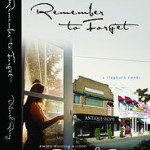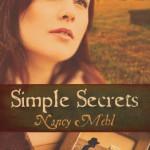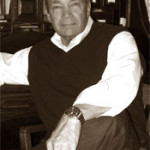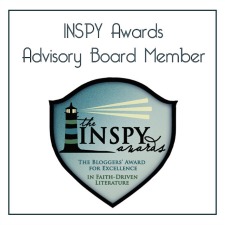 My book club’s final selection for 2007 was Deborah Raney’s Remember to Forget. We had a wonderful discussion and then read out our questions and the answers Deborah had graciously sent us. Here are our Q & A’s which I know you will enjoy!
My book club’s final selection for 2007 was Deborah Raney’s Remember to Forget. We had a wonderful discussion and then read out our questions and the answers Deborah had graciously sent us. Here are our Q & A’s which I know you will enjoy!
First, the synopsis of Remember to Forget:~
Who hasn’t dreamed of getting a chance to reinvent yourself and begin a brand new life? That’s exactly what graphic designer Maggie Anderson is offered when a terrifying carjacking leaves her stranded a hundred miles from her New York apartment—and her abusive boyfriend. When a kind stranger offers Maggie a ride, she begins a cross-country journey that ultimately lands her in tiny Clayburn, Kansas. Reinventing herself as Meg Anders, she is welcomed with open arms at Wren’s Nest, in exchange for helping Trevor Ashlock remodel the cozy inn. But can Maggie trust Trevor? Trevor has always been Clayburn’s favored son, but tragedy has put his faith in crisis, and now he has trust issues of his own. Once Maggie realizes Trevor is for real, she falls for him…hard. But if she confesses all the lies she’s let him believe about her, she will lose his trust and destroy everything she’s worked so hard to build. Meanwhile, Kevin Bryson isn’t crazy about the fact that his girlfriend and erstwhile punching bag has disappeared. When he unearths a clue to Maggie’s whereabouts, her life may depend on revealing the truth to Trevor.
And now our questions…
How did you research the theme of physical abuse and how did you emotionally cope with that plus having to write it down?
Sadly, I have known two young women who were in abusive marriages. That was the beginning of my research. But I also studied the psychology of women who stay in abusive relationships, and those who manage to escape. It’s a very complicated mentality and unfortunately, not as easy, emotionally, to “just leave” as it sometimes appears to an outsider. As far as coping with having to write such a painful situation, I’ve come to wonder if I’m able to write such heart-wrenching situations because my own life is so trouble-free. I’m afraid I’m a bit of a Pollyanna in real life!
I like your thought that Remember to Forget could be thought of as an allegory. Small-town life does remind me of church life – did you grow up in a small town?
I grew up on a farm! We lived eight miles from the small town where I went to high school. Then I went to college in a bit larger town, got married and my husband dragged me to New York City to live for two years. What a cultural shock for a little Kansas farm girl! But we came home to Kansas to raise our kids and now we’ve lived in several small towns. I couldn’t love it more. These towns are the inspiration for my Clayburn novels series.
The ‘coincidences’ (or God-incidences) in the book remind me to keep on following the Lord’s leadings even when we can’t understand them or follow through sometimes. He sees the big pi cture! Do you experience these in your life and career and so get the ideas for your book, or do your ideas come from other writings or just from God?
cture! Do you experience these in your life and career and so get the ideas for your book, or do your ideas come from other writings or just from God?
So, so many of the themes and even specific scenes in my novels come from my own life experience. And yes, the older I get, the more I recognize “God-incidences” in my life. I believe that one of the joys of heaven will be the revelation of the unseen, intricate ways God wove together the events of our lives to achieve His purposes in our being.
I found the questions at the end of the book very thought provoking especially the analogies you used such as comparing Maggie’s first encounter with the close knit community to a first encounter with a Christian environment and Trevor watching over Maggie as God would watch over us. I must admit when I read the book I only thought of it as an interesting and enjoyable story and did not think deeper than that until I read your questions. Did you plan the storyline of the book to fit these ideas and thus provoke deeper thought by providing the in-depth questions or did the story come first and the questions with their analogies were a result of the story?
I consider it quite a compliment that you enjoyed the story without thinking of the allegorical applications at first. The most difficult thing about writing allegory is not being too obvious. The idea for this story was conceived one weekend when I was frantic about a book deadline and my husband surprised me with a writing getaway at a bed and breakfast in tiny Lindsborg, KS. For some reason, I get SO much more work done when I go away from my home office. And this particular weekend was no different–until the second morning when I went for a walk through this little town reflecting on how safe and carefree life here seemed to be. That got the idea for Remember to Forget spinning in my head. When I came back to my room at the inn and started jotting down ideas, all of a sudden, the allegory clicked into place and from that point the story almost wrote itself. If I wondered about some plot point, I simply thought of the spiritual application, and there was my answer. I made my deadline on the other book, but best of all, I came away from that little writing retreat with a full-blown idea for a new book. Try as I might, I couldn’t make the subsequent books work as allegories. J
Is writing something you have always wanted to do?
When I was 11 or 12 years old, I read Laura Ingalls Wilder’s Little House on the Prairie series and absolutely fell in love with the stories. At the end of one of those books was a biography of the author with a line that said something like “Laura Ingalls Wilder was a little Kansas farm girl who grew up to write the stories of her life.” At that moment it struck me that perhaps another little Kansas farm girl–me!–could someday do the same! I tucked that dream away and held onto it for more than twenty-five years before it finally came true in the form of a novel! But as a child, I wrote little stories and poems and essays and long letters to a pen pal–all excellent practice for novel writing!
You have touched on a few relationship issues in this book, was your main aim to encourage your readers to leave their difficult past and move on in life?
That’s one way of putting it. But maybe deeper than that, I wanted to encourage people that no matter how much of a mess they’ve made of their life, there is always, always hope for a “do-over”–a chance to start all over again, become a “new creature,” and make the second part of life, in essence, a redemption of the first. (Recognizing, of course, that it’s Christ who does the redeeming, not us!)
Where did you get the idea to write such an emotionally upsetting story?
I sort of answered this question previously, but to add to that: Life seems to be emotionally upsetting! Though many of us live in the cocoons of loving family and friends, there are so many people hurting, so many people struggling. I wanted to write about a character who understood that kind of pain, yet found her way to a place where she could finally be wrapped in that cocoon of love and security.
Deb, when you are writing, do you feel that God is with you and speaking to you in the way Maggie heard the voice telling her to go to the river.
Excellent question! I don’t ever want anyone to mistake my answer for me saying that what I write is divinely inspired. And frankly, most of the time the ideas and themes in my book come from my imagination (which is God-given, but not always God-led). That said, I do always pray that God will inspire my writing, that nothing I write would be hurtful to any reader, and that everything I write would line up with the truths in His word. And every so often–perhaps once in each book–I will get the feeling that God has, indeed, placed His hands over mine on the keyboard and helped me to write the scene.
Beyond that, though, because I have dedicated everything I write to Him, I believe God sometimes supernaturally uses my humble, stumbling, human words on paper to bless another person in ways that my human mind could never have fathomed. For instance, I’ve received notes from readers who were blessed by a scene or a paragraph that I felt was my weakest, most awkward writing. Yet God used a sentence or two to speak to someone’s heart. That is the pure joy of writing for His glory!
How long did it take you to write Remember to Forget?
That’s a difficult question to answer because of the dovetailing that goes on in writing. For example, I wrote about a dozen pages of notes and scene ideas that day at the bed and breakfast and added to that over the next few weeks as ideas continued to come to me, but my other contracts took precedence and I wasn’t able to pour myself into the story for many months. Then, after the book was sold and I began working on it as my main work in progress, there were several times I had to set it aside and work on line edits of another book, or marketing for another, or prepare for a workshop I was teaching, etc.
I count that mulling, pondering time where I’m stirring up the pot of ideas in my head as necessary writing time, but if you’re asking how long it took to put the actual first draft on paper, I’d estimate that it probably took 4-5 months. I wrote my first novel (without a contract) in 5 months, and spent another 2-3 months on rewriting and editing. Since then I’ve learned so much about writing, and I am getting a bit faster. If I had no other writing obligations and could devote a regular work schedule to only writing, I could probably “crank out” a first draft in 3 months. But the reality is that I spend close to half my career time on the business aspects of writing–speaking and teaching at writers conferences, booksignings, answering reader mail, keeping my website and blogs up to date, interviews like this one, as well as in-person or radio interviews, keeping the financial books, etc. I never dreamed there was so much “extra-curricular” work involved in a writing career!
How do you think of a title?
Oh, my! The answer varies so much from book to book. Sometimes the perfect title will just come to me, as with Remember to Forget. It just popped into my head that same weekend the story idea did. Other times, I brainstorm and write down dozens of ideas and cross out and rearrange and play with the words until I’m satisfied. One title, After the Rains, came when I was looking at song titles on the collection of 350 music CDs my husband and I own. (Titles can’t be copyrighted, so it’s perfectly ethical and legal to use the same title as another novel, or the title of a song or poem, etc. Of course if you give your book the same name as another author’s, you’re likely to sell more copies of their book than your own! Which is why song titles make wonderful book titles. J)
Having said all that, often the publisher does not use the author’s title! My first publisher rejected every one of my title ideas and brainstormed with me to come up with an alternate. A publishing house will rarely “force” you to use a title you hate, but the author definitely doesn’t have final say over their book’s title. But I’ve been allowed to keep my last six or eight titles, so I must be getting better at coming up with good ones!
Occasionally a title will have to be changed for technical reasons. My novel  A Nest of Sparrows was originally called The Road to Home, but shortly before it went to press, the marketing department realized it was much too similar to another book they’d published. So my editor and I went back to the drawing board at the last minute and I brainstormed with some friends for a new title. A Nest of Sparrows was my editor’s idea and it resonated with me immediately. It’s probably my favorite title of all my books–even though our then-twelve-year-old daughter scoffed: “It sounds like a book about birds!”
A Nest of Sparrows was originally called The Road to Home, but shortly before it went to press, the marketing department realized it was much too similar to another book they’d published. So my editor and I went back to the drawing board at the last minute and I brainstormed with some friends for a new title. A Nest of Sparrows was my editor’s idea and it resonated with me immediately. It’s probably my favorite title of all my books–even though our then-twelve-year-old daughter scoffed: “It sounds like a book about birds!”
Which authors do you like to read and why?
There are SO many, it’s hard to name only a few. I read both secular and Christian fiction. Secular because I think it’s important to know what the ABA market is putting out, and because I don’t want to become too distant from the way the secular world thinks and lives. But I read Christian fiction because it feeds my soul and entertains me in a way I don’t have to feel guilty for later! J Some of my favorite writers in the CBA are Robert Elmer, Ann Tatlock, Robin Lee Hatcher, Angela Hunt, James Scott Bell, Roxanne Henke and my critique partner, Tamera Alexander.
What part of the day is your most productive writing time?
I get a lot of computer work done early in the morning. I began answering these questions at five a.m. the morning after Thanksgiving. J Early morning is when I update my website, answer e-mail, work on my speeches, etc. Then after my husband has gone to work, and our daughter to school, I do the housework and maybe a little gardening and get to my computer to write by 9 or 10, and continue until 2 or 3 in the afternoon. The final month I’m on deadline, I may need to go back to my desk late in the evening and write for another couple of hours, but as a rule, I try not to write after my family comes home (though I may work on other, less concentrated tasks like e-mail, etc. in the evenings.)
Have you always been a story teller?
I can remember setting up story times for my dollies when I was a very little girl, and building houses and towns with building blocks or drawing bird’s-eye view maps of little villages and making up stories to go with them, so I guess the answer is yes. But I didn’t write a full-length novel until I was 38 years old, so there’s hope for anyone!
What is your ideal holiday?
Valentine’s Day has always been my favorite holiday. I love the sentiment of love and a holiday for sweethearts, I love that the holiday is only one day, and then it’s over. And I love that there’s not a lot of decorating or preparation involved. My husband always sends me and our daughters roses for Valentine’s (last year I got a gorgeous orchid that bloomed until July!!) and I bake him frosted sugar cookies in the shape of hearts. Very simple traditions, but I love it! Maybe part of that is because Valentine’s comes in the middle of the long Kansas winter and adds a bright touch to the season.
Maggie was very attached to her cat. Do you have any pets?
Growing up on the farm we always had lots of cats (my brother and sisters and I counted over 20 one time!) because they kept the mice out of the barns and grain bins. So we saw many kittens born and I’ve loved cats ever since. This past summer was a very special one because of a stray cat who adopted us–and then presented us with a litter of four kittens. We enjoyed every minute of raising them, found homes for each one, and made an appointment with the vet to have Mama Kitty “fixed.” But by the time the appointment came, she was obviously expecting again. So we raised another precious batch of kittens–five this time–and raised inside, so Mama couldn’t trick us again! J Again, we were fortunate to find loving homes for the kittens, but we decided to keep one–a precious fluffy yellow and white kitty our daughter named Sundae. We already had a wonderful fourteen-year-old black cat when Mama Kitty came to us, so now we have three cats in the yard and I couldn’t be happier! J
Do you map out your characters before you start or do they develop as you write about them?
Mostly they develop as I write about them. I’ve experimented with character charts and such, but for me, it seems to work best if I get to know my character as I go and then, as I discover their personalities, I go back and layer in those traits earlier in the book. I do always have a physical description of my character in the form of a photograph on a bulletin board near my desk. I find my characters in catalogs, magazines, or sometimes from real life. But their personalities develop as I go along.
Do you work solely on one book at a time or do you have a few ideas going at once?
Because of the way publishing works, I’m often forced to set aside my work in progress and go to a rewrite or line edit on another book. It can get confusing to switch between sto ries, but it’s a necessary evil of the business. And then, as with Remember to Forget, sometimes ideas for a new book come while I’m writing a different story–often as a result of research for the first book.
ries, but it’s a necessary evil of the business. And then, as with Remember to Forget, sometimes ideas for a new book come while I’m writing a different story–often as a result of research for the first book.
What are you working on at the moment?
I’m in the early stages of the first draft for the third Clayburn novel, Yesterday’s Embers. The second Clayburn book, Leaving November, will come out in March, with Jackson Linder as the hero. He’s fresh out of rehab and struggling to make something of his life.
What was your favourite scene to write?
I surprised myself by really enjoying writing that first scene where Maggie is carjacked in New York. I’m NOT a fan of suspense, and that scene is full of action–but I enjoyed it! I also loved the scenes where Trevor and Maggie are working together to renovate Wren’s Nest.
Any ideas who you might cast in a movie of Remember to Forget?
ideas who you might cast in a movie of Remember to Forget?
Oh! That’s fun to think about! J Let’s see…I could see a young Aidan Quinn as Trevor, and Uma Thurman or Charlize Theron as Meg/Maggie. Wren is modelled after my childhood Sunday School teacher.
Favourite movie and favourite line from a movie?
I don’t watch a lot of movies or television–I’d much prefer to be reading a book! But I loved the film Children of a Lesser God, and recent movies that really touched me were Miss Potter and Amazing Grace. One thing I do love about movies are the sound tracks! I often write to movie soundtracks and it enriches the experience of reading and writing immensely!
Please share some of your faith journey…
I grew up in a loving Christian family, and we attended a little country church where my Sunday School teacher made the Bible come alive for me. I’ve had a rich prayer life since I was a child. I went through a short (one-year) rebellion in high school, but even then I had an ongoing conversation with Jesus. (Lord, I know I shouldn’t have gone to that party, drank that beer, said those curse words, lied to my parents. Please forgive me, etc.) I quickly found my way back to the Lord and dedicated my life to Him. He brought my Christian husband into my life shortly after that and we’ve been trying to live for the Lord as a family ever since. Sometimes I wish I had a more dramatic conversion story, but most days I’m very thankful for a steady walk with Him and a wonderfully ordinary life.
Any last words?
What wonderful questions! You’ve made me feel as if I’m sitting with you over a cup of coffee! For photographs of many of the things I spoke about, and more information on my books, please visit my website at www.deborahraney.com
Thank you so much for letting me be a part of your lives through my novels!
Thanks Deb – it was fun! For more, read my review of Remember to Forget, here and check out Deb’s website for her upcoming stories.











December 20, 2007 at 4:47 pm
Thanks for the fun questions and great interview, Rel. I laughed with you about that holiday/vacation mix-up. You’ll be happy to know that I answered your REAL question on my website here:http://deborahraney.blogspot.com/2007/12/final-cover-for-leaving-november.htmlHope you have a wonderful, blessed Christmas!Deb~
December 22, 2007 at 12:49 am
This is next for our book club. Initially, when our fearless leader described it I wasn’t jumping for joy but when I read the first page: hooked! Thanks for the interview Rel and Deborah!